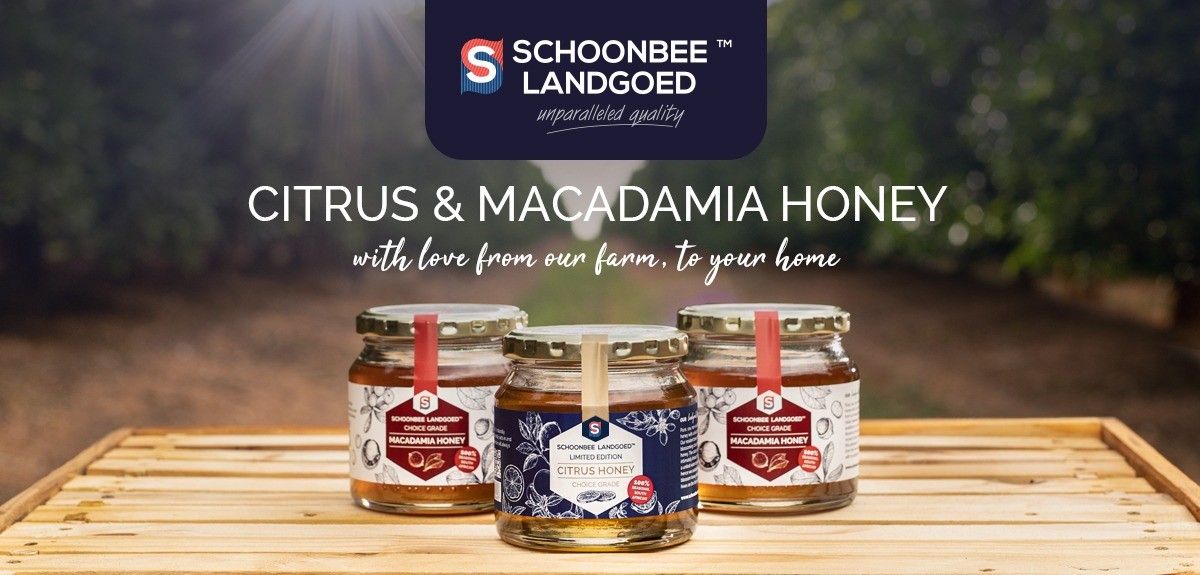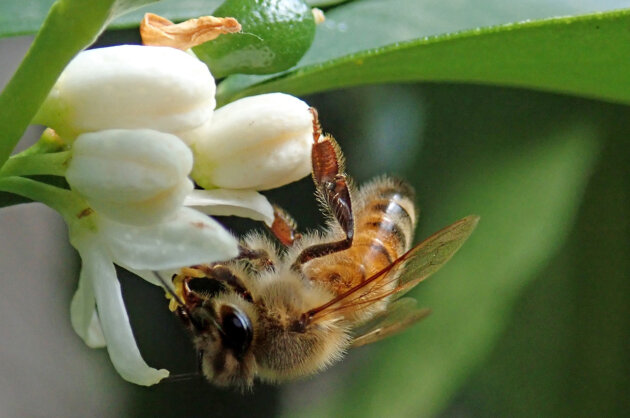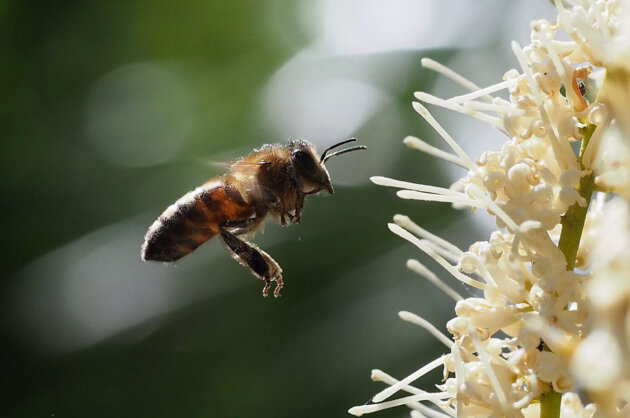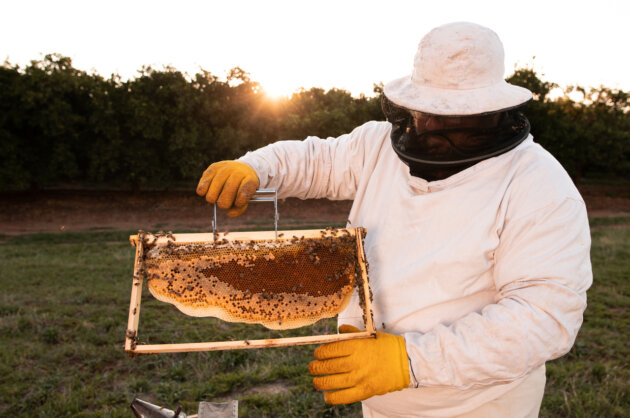Honey
Schoonbee Landgoed does not only produce export quality citrus fruit and table grapes but recently embarked on a new venture: Beekeeping and honey production.

What is better than drizzling a golden droplet of honey in your tea? Or replacing all those sugary calories in your cooking and baking expeditions with the healthier option produced by nature? Honey, known for its powerful antioxidants and nutrients, is one of the oldest natural sweeteners available to mankind.
Did you know that honey also has healing properties? Topical honey treatment has been used to heal wounds and burns since ancient Egypt. The practise is still common today. Honey is also mentioned in ancient Biblical texts and since that time, its popularity has never faded.
Why honeybees on a citrus farm?
Schoonbee Landgoed’s core focus is growing citrus fruit and grapes, so why diversify into honey production? Everything in nature has been created to function in perfect harmony and balance. For the team at Schoonbee Landgoed, it is not only about growing the best quality fresh produce, but also ensuring we protect our environment.
Adopting sustainable farming methods is one of our top priorities at Schoonbee Landgoed. Therefore, we have implemented initiatives such as developing a solar farm to reduce our carbon footprint and using netting on our orchards and vineyards to save up to 30% of our precious water.
It was this mindset that birthed the idea of nurturing a resident bee colony on Schoonbee Landgoed as bees are key to the sustainability of our planet. Success will be an indicator of our respect for the environment.
At this point, it is interesting to note that citrus trees do not rely on bees to produce fruit. In fact, certain citrus varieties get seeds inside the fruit if bees move between the cultivars which are not ideal for our consumers.
Citrus honey – a rare delicacy
It seemed obvious to exclusively produce citrus honey since we have vast citrus orchards on the Schoonbee Landgoed farm. However, soon after starting our resident bees project, we realised that the abundance of citrus blossoms from August to October every year does not make up for the need for an alternative food source for the rest of the year. Therefore, we started actively planting more aloes in the field to supplement sources of food in the winter months from May until July.

The exclusivity of citrus honey comes from the fact that citrus flowers’ lifespan is so short and most beekeepers do not want to expose their bees to citrus anymore due to the risk of lethal chemical sprays. The amount of citrus honey produced per year is limited making citrus honey rare but extremely popular. This almost transparent honey has a unique taste without the aroma of the field and flowers that usually accompany other types of honey.
If you have never tried citrus honey, you will be excited to know that we plan to have this scarce delicacy available in our online store from 2023. For now, our limited citrus honey stock is reserved for very special prizes only!
Macadamia honey – a rich alternative
To combat the limited amount of citrus honey being produced annually, we have extended our honey adventures to include Macadamia honey from a beekeeper in the Loskop Valley. This type of honey is produced by bees living near macadamia nut tree orchards so that the bees can pollinate the white flowers of the macadamia nut trees. So, if you are a fan of nuts, macadamia honey’s slightly nutty flavour is definitely for you.

As soon as the honeybees collect the macadamia blossom nectar, it is mixed with an enzyme known as invertase in the bees’ mouths. Back at the hive, the bees will share the collected nectar between themselves and thereby mixing the nectar even more with the bee enzyme.
Thereafter, the bees will deposit the honey into the characteristic beeswax cells and beat their wings just above the wax cells to reduce the water content in the honey until the honey is just the right consistency.

The inclusion of macadamia honey at Schoonbee Landgoed ensures that we have honey available for the larger part of the year. So, why not hop over to our online store to order some of our macadamia honey? And watch this space for our citrus honey becoming available in 2023. Order here: www.schoonbee.co.za/shop